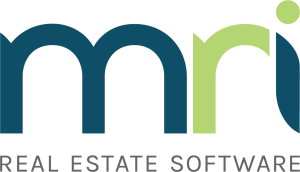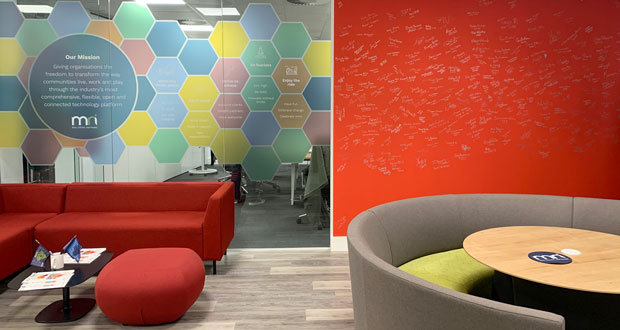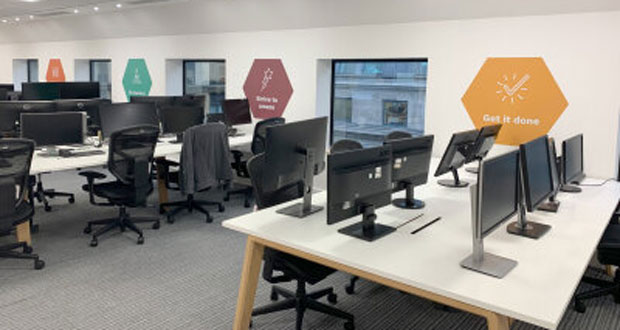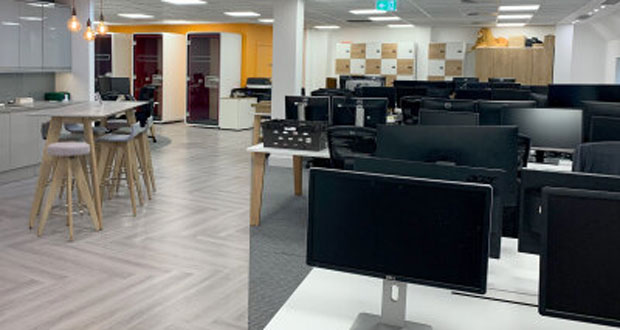Using data capture and analytics technology, the team at MRI Software’s head UK offices at King Street in London have streamlined energy usage and created a more efficient and flexible workplace, leading to an estimated saving of £20,000 per year.
Stubbornly high energy costs and high inflation rates in the UK have increased the pressure on businesses to operate efficiently and cut excess. Similarly, mounting concerns around sustainability and tightening ESG targets are also driving businesses towards further strategies to reduce energy usage and minimise their carbon footprints.
At the same time, the widespread adoption of hybrid work models has changed the way that office space is used, and presents opportunities for businesses to cut costs associated with facilities and space management.
To capitalise on these opportunities, in March 2023 the team at the MRI offices in London introduced the use of footfall analytics technology, MRI Springboard, and aligned it with their energy management solution, MRI eSight. This offered insights into how efficient the building was and allowed the team to measure energy and carbon emission per footfall.
Equipped with this data, the team were able to make informed decisions around energy management and streamline usage to match occupancy levels.
Occupancy-based energy usage
MRI Springboard measures real-time occupancy data and provides analytics to ensure businesses can make data-driven decisions based on footfall and dwell time. Installed into the MRI office building, the system measures overall occupancy, and delivers insights on trends and patterns.
As the team at the MRI London office operate using a range of different work arrangements, including remote and hybrid models, presence in the building is inconsistent, and over a period of a number of weeks, MRI Springboard was able to identify recurring patterns in occupancy levels.
Using MRI eSight, the team were also able to analyse and manage energy usage. The MRI King Street offices in London are situated over seven stories, with energy meters to measure consumption on each floor. By comparing both datasets, the team were able to identify opportunities for reductions in energy usage.
Reduced costs
By analysing the data captured by the occupancy sensors, the team at the King Street offices were able to identify that Thursdays were the busiest days, meaning that the majority of the spaces in the building were being utilised. However, on the quieter days, it was possible to close off whole floors of office space, meaning that lighting, heating, and air conditioning was not needed, reducing utility usage and cutting costs.
This proved to be very valuable and based on the data collected between March and June 2023, the team at the MRI King Street offices estimate that this initiative will save the company around £15,000 by the end of the year.
Thanks to these insights from occupancy data, it was also possible to adjust cleaning schedules to remove unused areas from rotas, as well as adapt maintenance schedules to be use-based rather than calendar-based. This is leading to further operational savings, representing a more streamlined and efficient way to maintain the building.
Accelerated progress towards ESG targets
Through the management of energy consumption on an occupancy basis, usage was reduced overall, not only cutting costs but improving the building’s sustainability, too. Using footfall data to inform space usage and therefore energy requirements ensured that wasteful use of heating or air conditioning was eradicated, and excess carbon emissions were reduced.
Additionally, MRI eSight provides the capability to convert energy usage into carbon emissions data, and therefore it was possible to track carbon footprint per footfall, a useful metric for future work to reduce carbon emissions and reach net-zero.
Thanks to this, the team at the King Street offices were able to demonstrate further progress towards their ESG and net-zero targets.
Improved employee experience
In a post-Covid environment, employee demands of an office space are rising, after staff have returned from long periods of mostly remote working. With the expectation of flexibility in job roles, there is also an expectation of flexibility within the workplace, and office managers need to ensure that facilities are maintained and managed accordingly and to a high standard in order to promote employee satisfaction.
With detailed data and insights on occupancy patterns, the team at King Street could leverage this to adapt the offices, making the most of the available space and maximising occupancy in an energy-conscious way.
Provision of services based on occupancy meant that greater focus was placed on the integration of hybrid working practices into the workplace. Employees could rely on facilities being well-maintained and spaces being designed around their needs, meaning staff were able to work productively while enjoying job flexibility.
Through increased efficiency of energy and space, the team at the MRI London offices have created a safe, efficient, and productive workspace, fit for modern  working practices and requirements.
working practices and requirements.
MRI Springboard and MRI eSight are designed to help businesses make smarter, data-driven decisions, reducing cost and driving efficiency. To learn more and to find out how your office could benefit, contact our team today.







